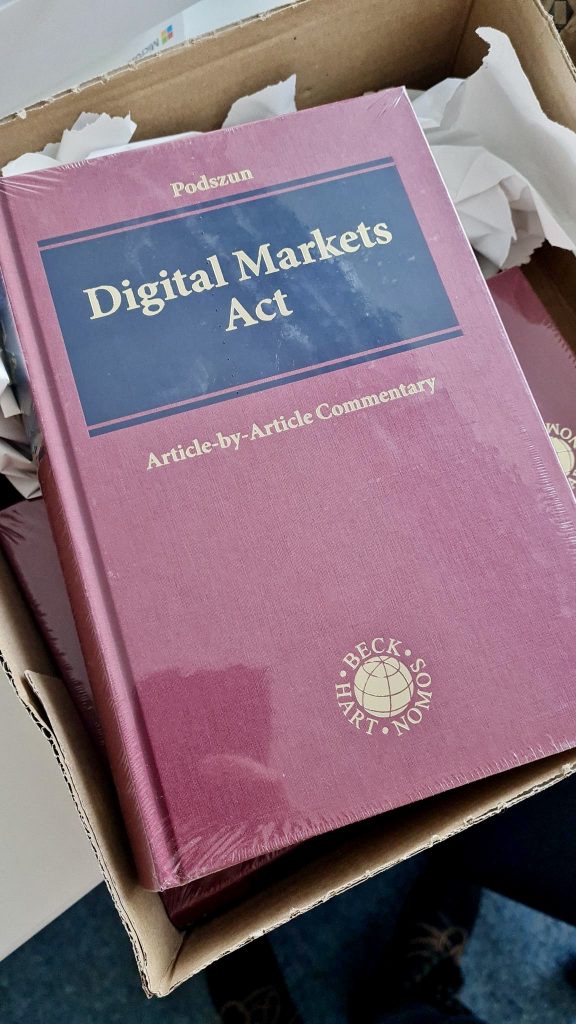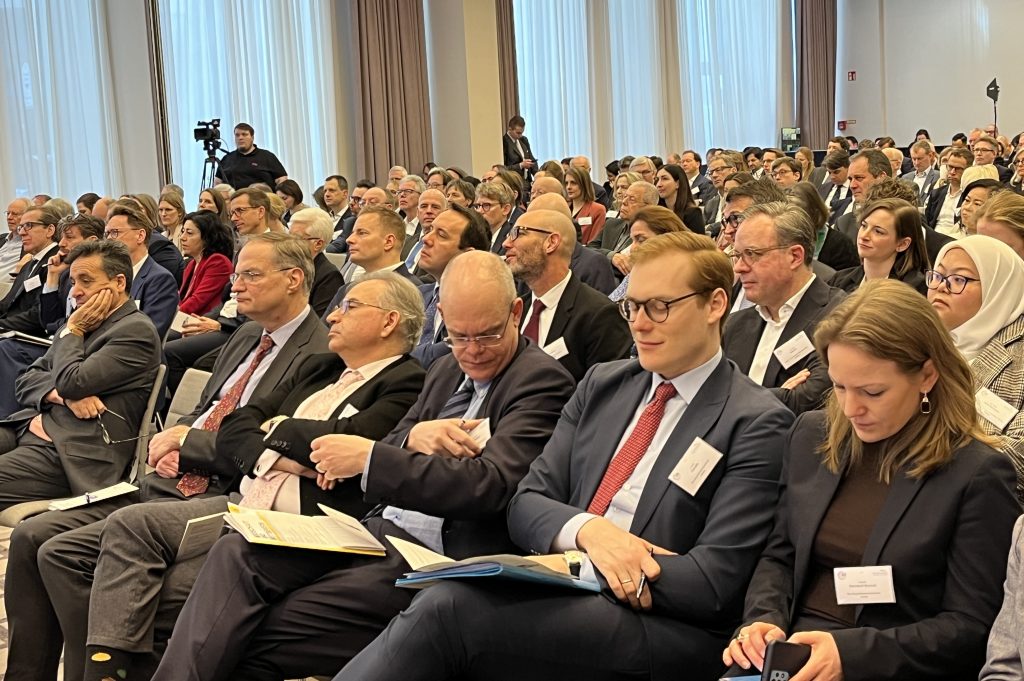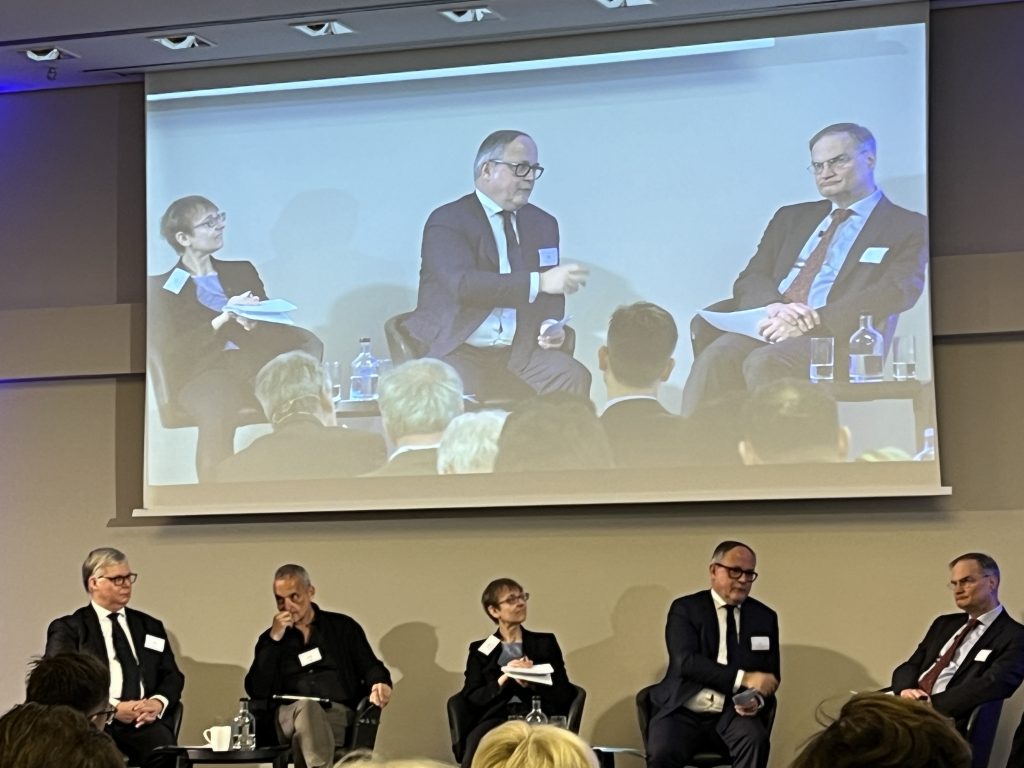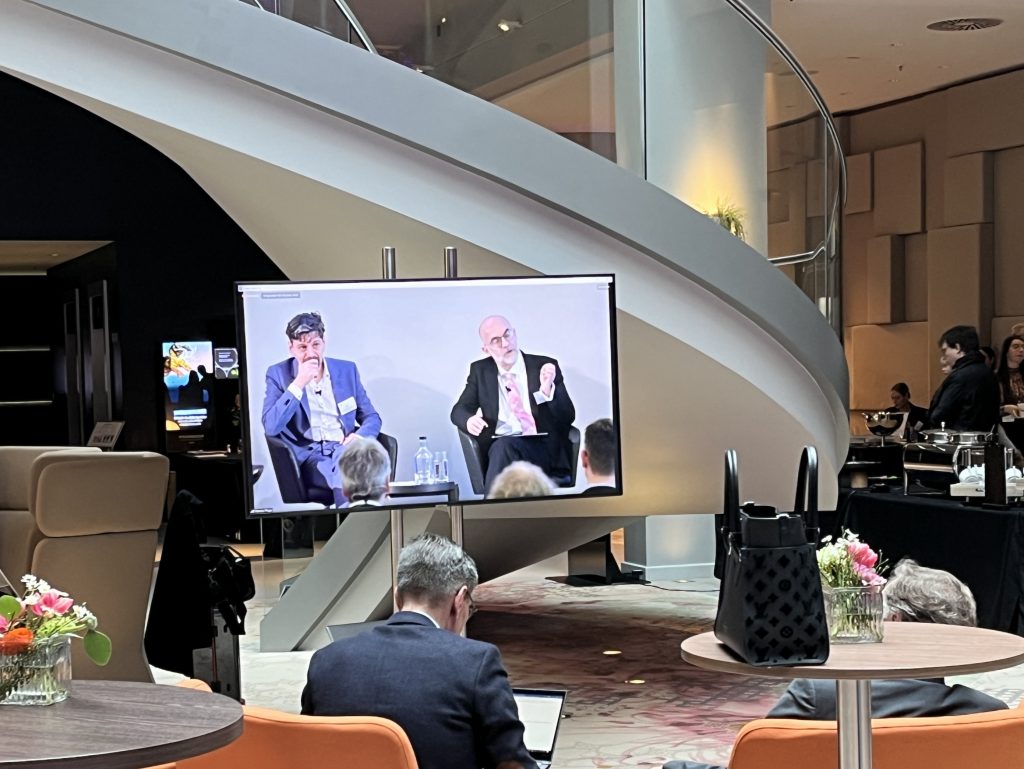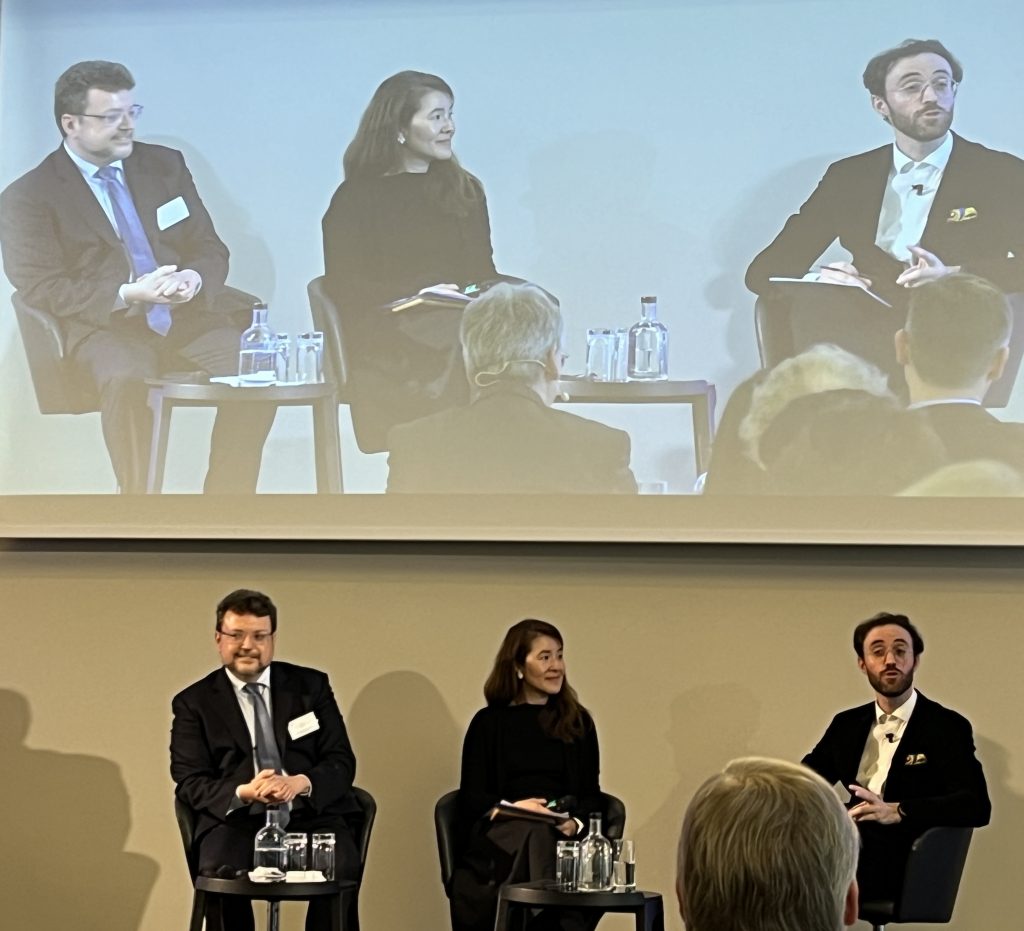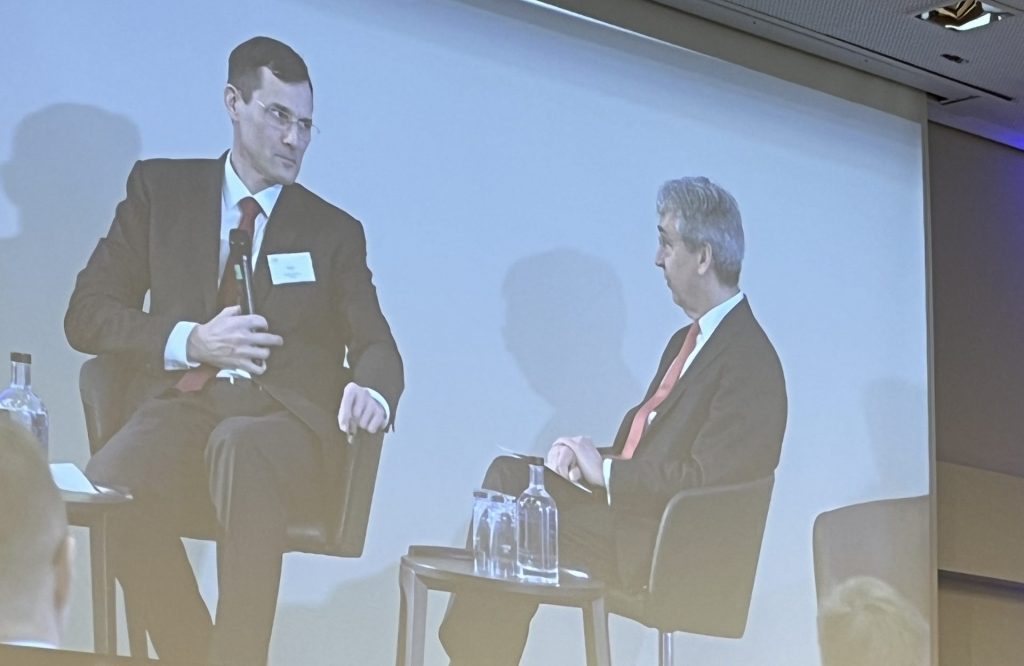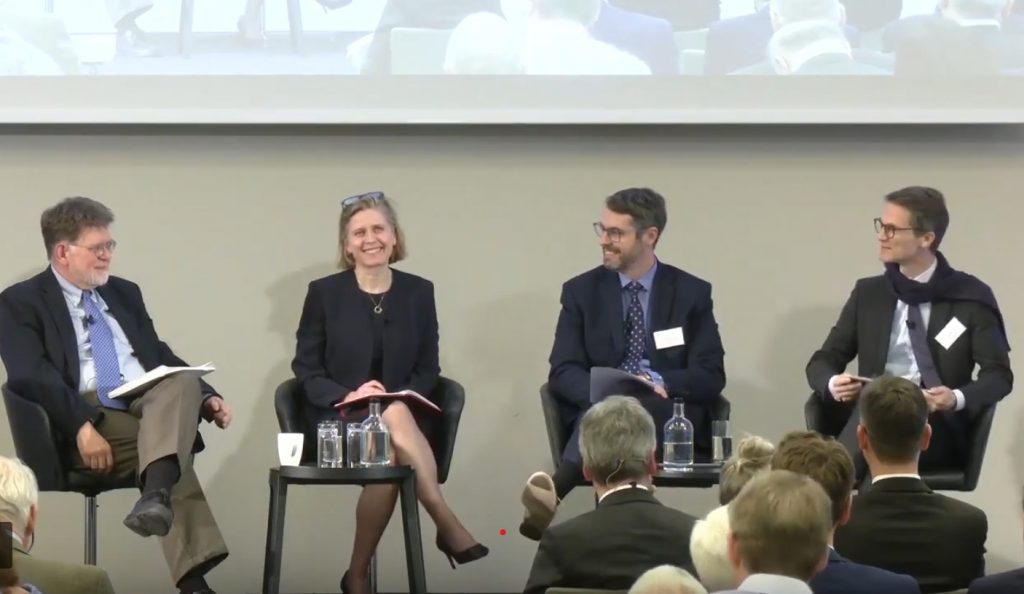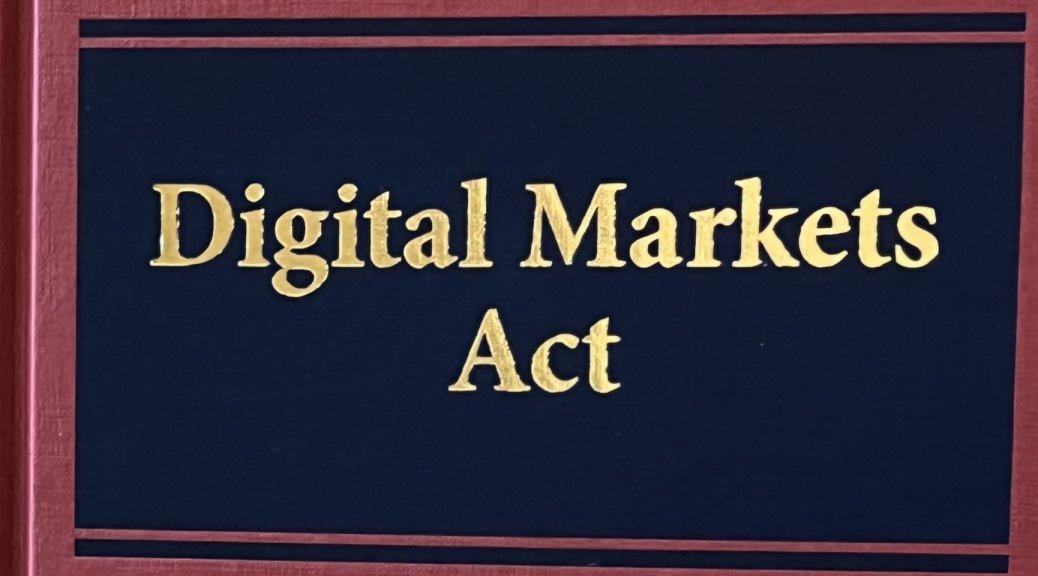
DMA AI IKK
PDF-Version: Click here
Suggested Citation: Podszun, DKartJ 2024, 7-13
The Digital Markets Act shows its teeth: The European Commission opened the first investigations for non-compliance against Apple, Alphabet and Meta. Rupprecht Podszun reports on the first 20 days of DMA razzle-dazzle. He also looks back at the Bundeskartellamt’s Berlin IKK conference and he has some news from his Chair that he wishes to share.
Breathtaking
If DMA enforcement keeps up its March-marching pace I voluntarily switch my interest to a more relaxed field, energy law or so.
- On March 1, it was announced that Booking.com, X and ByteDance (with its ad service) may qualify as new gatekeepers. The Commission has 45 working days to assess.
- On March 6, the Commission published its first DMA Annual Report.
- On March 7, the current gatekeepers (Alphabet, Amazon, Apple, ByteDance (for TikTok), Meta and Microsoft) had to hand in their compliance reports and the profiling reports. Summaries were published. The obligations kicked in. Ever since, I try to keep track of the pirouettes Apple & others perform to escape their new duties.
- On March 11, Margrethe Vestager was inducted in the Hall of Fame of Technology Festival SXSW in the United States (congrats!), stating “we have not cared enough about risks with digital services”.
- On March 18, the Commission started DMA workshops. In these workshops, stakeholders were able to ask questions to gatekeeper staff after their presentations on compliance. Just to give you the flavour – Albrecht von Sonntag, Managing Director of Idealo, a comparison shopping portal, asked Google’s Oliver Bethell:
“My honest question now to you, Oli: What are you aiming at? The opening of a non-compliance decision by the Commission? Or would you rather have each and any of us take you to our national courts? After record-breaking antitrust fines and billion-Euro-damage claims – are you looking for a new record: the monopolist being sued by the most companies?”
(“Oli”, charming as ever, did not directly provide an answer.)
Tell me why (I do like Mondays)
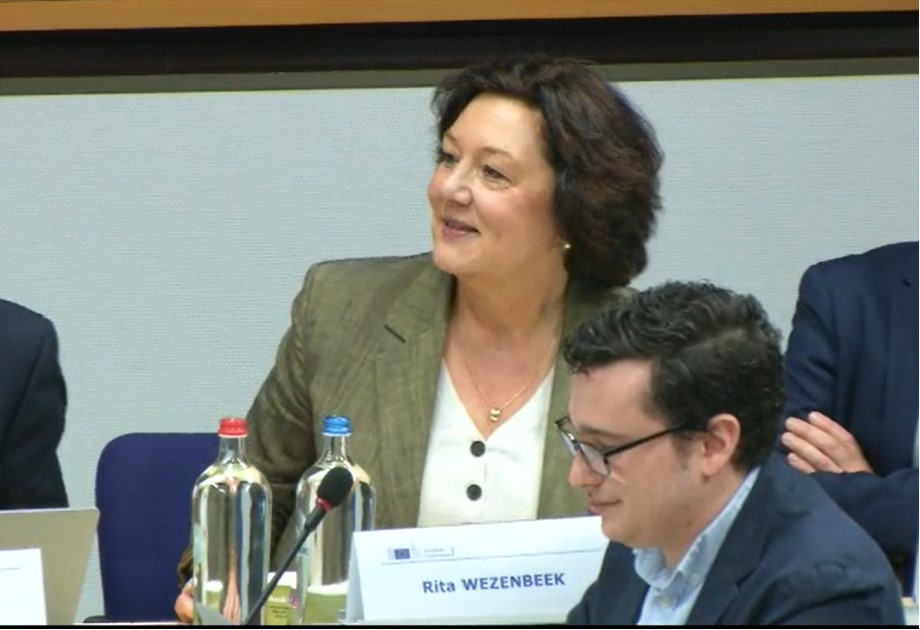
When we got the timetable for the DMA workshops we noticed that there was a break on 25 March 2024. There were five workshops in a row where Apple, Meta, Amazon, Alphabet and ByteDance were grilled were able to unfold their compliance activities. Then there was a weekend, and a Monday off and then came Microsoft. So, why was there this pre-Microsoft mundane Monday minibreak?
We have a new blog, specifically dedicated to issues of digital regulation. Check out www.scidaproject.com!
People who went through the German state exams can tell from experience that the day off in between is not helpful. It looks nice at the outset (you can sleep in and revise municipal law for the next day), but when it is there, you just want to have things over, cannot sleep anyway, and it turns out that they do not examine you on municipal law but on principles of administrative enforcement.
When that Monday arrived, the Commission’s DMA team did not sleep in. Instead the Commission announced that it had started the first non-compliance investigations against Alphabet, Apple and Meta plus some further investigations. Whoever thought that the DMA would be about a cosy “regulatory dialogue” was mistaken: The Commission plays hardball – and rightly so. This is the spirit of the DMA: Determined action, speedy & effective. The original “regulatory dialogue”-wording had been deliberately deleted during the legislative procedure.
The Commission now has 12 months to investigate and decide. If they find non-compliance, this is strike 1 out of 3 for establishing a presumption of systematic non-compliance (Article 18(3)). This may lead to severe consequences.
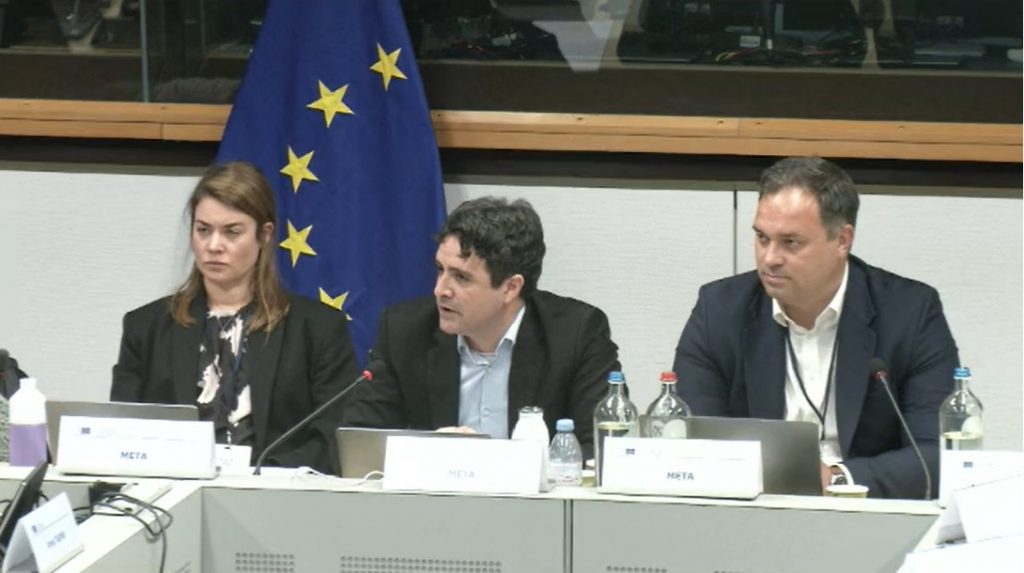
The courts will have a say, of course. But the General Court proved sympathetic to the Commission’s Google cases, and its President has sided with the Commission in the first ever court proceedings on the DMA (concerning ByteDance’s gatekeeper status). This ruling has some heartening observations for the Commission. Marc van der Woude (the General Court’s president) is merciless with the TikTok-owner regarding its burden of necessary substantiation. Yet, he also acknowledges a “lack of precision” regarding Article 5(2) DMA – yet it is not clear to me whether he thinks that the law is unclear or the ByteDance submission, or both.
Back to Law
This leads me to an interesting point (and to my first of two exciting news from my Chair). Can you imagine a court saying “there is a lack of precision in Article 102 TFEU”? Of course not! Article 102 is the textbook example for lack of precision – no need to highlight that.
The DMA is different: It is a very concrete, detailed and specific piece of legislation. Regarding the legislative technique the DMA is more like a block exemption regulation (BER). (The notable difference is that companies falling under the BER love it. Those falling under the DMA claim that “the potential resulting harm [from observing the rules of the DMA] (…) is significant and potentially ‘existential’” (ByteDance in para 39)).
Now, this legislative difference means back to law: The DMA must be interpreted just as we learned to interpret the law in Law101 the very first classes on contract law. For competition lawyers that is somewhat strange since we have become so used to economic arguments.
There is some help around the corner (Big News #1/2): We have just published an article-by-article commentary on the DMA, guiding everyone through the application. I unboxed my volume on that Monday, March 25, mentioned above. Everyone who sees the book with its burgundy cover and the majestic inscription “Digital Markets Act” emblazoned in gold lettering against a dark blue background is thrilled. And the quality of the paper – I didn’t even realise such a thing still existed! For bibliophile reasons alone, you should put this on your shelf. (Kudos to Beck Nomos Hart, our publishers!) If you read it occasionally, you will probably also find that the authors have put a lot of effort into understanding and decoding the DMA.
Sorry, I was carried away a bit by my marketing zeal. But it is a good book (really). It is not a translation of our German commentary (that some of you may already have noticed), but it is a completely updated and revised version.
Send in the Economists
If the lawyers take the helm, what is left for the economists? I have discussed the DMA with some of the most wonderful economists around (and some awesome law colleagues). When we embarked on this, I had feared this would end up as a self-help therapy group for competition economists turned jobless. But no. First, they are academics, so they are not in it for the money. Secondly, we found a lot of good use for economic insights to the DMA enforcement without corrupting its speedy application (you can read our paper open access here).
Probably, the first two sentences of Article 8(1) DMA are the most intriguing part:
“The gatekeeper shall ensure and demonstrate compliance with the obligations laid down in Articles 5, 6 and 7 of this Regulation. The measures implemented by the gatekeeper to ensure compliance with those Articles shall be effective in achieving the objectives of this Regulation and of the relevant obligation.”
The gatekeepers need to demonstrate compliance. And compliance means “effective in achieving the objectives” of the DMA. Wow! Send in the economists: What does “effective” mean in this regard? We need indicators, benchmarks, concrete results for this. In the compliance reports, we have not yet seen any indication how gatekeepers define “effective in achieving the objectives”. That means: We must work on these issues, and we will watch what is coming.
New Kids on the Blog
To do this, we have a second exciting information to report from our team (Big News #2/2): We have set up a brand-new project on competition and digitisation! We cover the DMA, section 19a of the German competition act, and the UK Digital Markets, Competition and Consumers Bill. It is a project run by Oles Andriychuk from Newcastle University and me. Oles is of course known as a stunning philosopher of digital regulation – and an equally stunning YouTube practitioner! The Deutsche Forschungsgemeinschaft (DFG) and the UK Arts and Humanities Research Council (AHRC) gave us generous funding for this.
These days, research projects need a bizarre acronym, otherwise they can’t be considered serious research. Oles and I came up with SCiDA – Shaping Competition in the Digital Age. We have a team (still growing), including Jasper van den Boom and Sarah Hinck, and we have – drumroll, please – a new, glossy, fancy blog! (Philipp Offergeld, who did a lot of work on this, calls it “clean”. Okay.)
The blog is here: www.scidaproject.com. You can sign up for the newsletter so as not to miss any of our blog posts. The first three blog posts are online (together with some other material), but of course it is work in progress and we are happy to get your comments and contributions. I recommend reading Jasper’s and Sarah’s report from the DMA workshops, as well as their categorization of compliance risks. There is much more to discover on the website – check it out! (There is even an explanation why SCiDA is not such a bizarre acronym after all, but makes perfect sense.)
I will remind you at the end of this blog post that you better (a) buy the new commentary and (b) sign up for the SCiDA blog. You can do that now, of course, too. I’ll take a short break and listen to a really good Monday song.
Okay, welcome back!
The DMA gets surprising criticism from two sides if I take soundbites on gatekeeper candidate X (formerly known as Twitter) as a yardstick. Kayvan Jebelli, a consultant in Brussels with some sympathy for the devil Silicon Valley, finds it stunning that “after months of efforts and regulatory dialogue, the companies targeted by this legislation still don’t have a clear sense of their obligations”. This, in his view, “calls into question the very logic of the DMA. It was supposed to be a clear list of dos and donts”. Interestingly, Tommaso Valletti, former Chief Economist, and not a suspect of close ties with Big Tech, goes into a similar direction, commenting with sarcasm on the new DMA investigations: “Was the #DMA not supposed to be ‘self-executing’?”
I do not share their wondering. The prohibition of murder has been in the books for ages. I thought that was ‘self-executing’ (no pun intended), too, but still there are people out there who seemingly do not have a clear sense of their obligations.
No AI in the DMA?
Sorry, for not having mentioned AI so far. Here we go. The next paragraph was written patched together by Microsoft’s Copilot:
“While the DMA does not explicitly focus on Artificial Intelligence (AI), the rapid advancement of AI technology and its integration into digital services means that AI could indirectly fall under the scope of the DMA. The Act seeks to address the risks associated with “bigness” in digital markets, which could include large AI-powered platforms that act as gatekeepers. There is a growing concern that the current framework may not adequately cover generative AI systems, which could become gateways for AI-based services. As such, while AI is not the primary focus of the DMA, its implications on AI systems, particularly those that could dominate market access, are indeed significant and warrant careful consideration within the Act’s regulations.”
A bit dull, but well summarised, OpenAI! I can only hope that the paragraph does not infringe copyright, in particular that of Ayse Gizem Yasar and her co-authors of this paper. German competition law influencer Hanno Bender had a great screenshot of a document from the New York Times’ lawsuit against Microsoft, OpenAI and others where the Table of Contents sets the record straight:
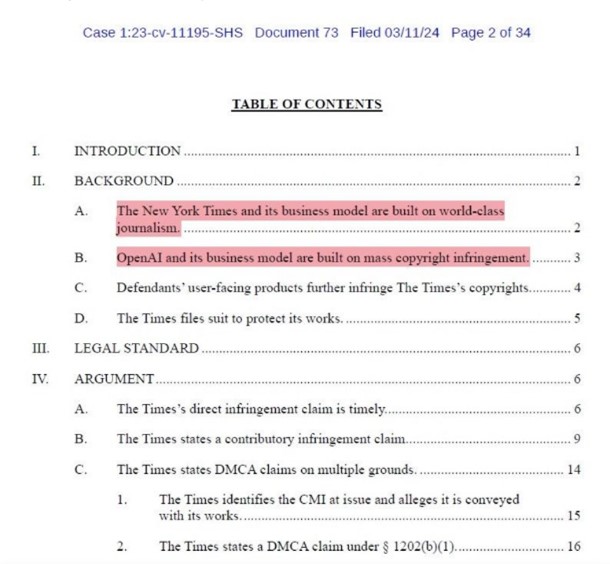
Regulatory diaAIlogue
The German Ministry of Justice organised a “high level summit” on GenAI and copyright. Philipp Justus, a Google Vice President, was at this summit. The Ministry posted a photo of his talk and stated on X:
“Artificial intelligence for the benefit of mankind – this is what @phjustus, Vice President of @GoogleDE, makes a case for during our GenerativeAISummit. Dialogue and partnership-based solutions are needed to address copyright issues relating to AI-generated content.” (Bundesministerium der Justiz, @bmj_bund, X, 5 March 2024, my translation)
Is this statement a bit… awkward? Sure, I do not doubt that Google is only in it “for the benefit of mankind”. But I had not been aware, so far, that we go for “dialogue and partnership” when “copyright issues” come up. In my experience, German jurisprudence on copyright is full of harsh rulings against violations of copyright that some may deem as “petty”. I’m looking forward to the German initiative to change the rules and to liberalise copyright by introducing a “benefit of mankind”-defence.
Wish list
Let’s quickly turn to competition law (but I will revert to AI later). The Bundeskartellamt’s 22nd International Conference on Competition took place in Berlin at the end of February 2024. For Germany, this IKK is arguably the most interesting venue for competition law. This year, the team of Andreas Mundt had a particularly good touch in choosing speakers.

The first highlight was of course that night at Nolle, a peculiar Berlin restaurant. At the door (waiting for Andreas Mundt’s handshake) you get to know Salome Kavtaradze from the competition agency in Georgia. As you make your way to the cloakroom you pass Siemens’ Georg Böttcher, Irene Sewczyk from the Bundeskartellamt, Jürgen Kühling from the Monopolies Commission and Mario Strebel who heads the Swiss branch of the famous Studienvereinigung. His German counterpart Ingo Brinker mingles with the Düsseldorf crowd – better so since he soon joins Tilmann Kuhn at White & Case there, coming from Munich. (Brinker’s move is probably job market news of the year for JUVE.) You spot Martijn Snoep, Ioannis Lianos, Thibault Schrepel. Someone points out that Margrethe Vestager wears pretty cool sneakers. Top judges like Ulrike Pastohr are there – shortly after the conference we learn that she moves from the Düsseldorf bench to the German Supreme Court.
Next morning, those who were still a bit sleepy after a night in Berlin are woken up by the second highlight – the opening address by Sven Giegold. Giegold, a State Secretary for Economics, takes great interest in competition law and in competition law reform. He reiterated that we will see another reform of the German competition act in this legislative period. (For our non-German readers: As a member of the German government, it takes a certain amount of confidence to claim that a law will be passed in this legislative period that is part of economic regulation.) Topics may include merger thresholds, sustainability, damages and, most controversially, but also most needed (in my humble opinion) powers for the Bundeskartellamt in questions of violations of unfair competition rules. This was not the remarkable part of this stimulating speech (available here), though.
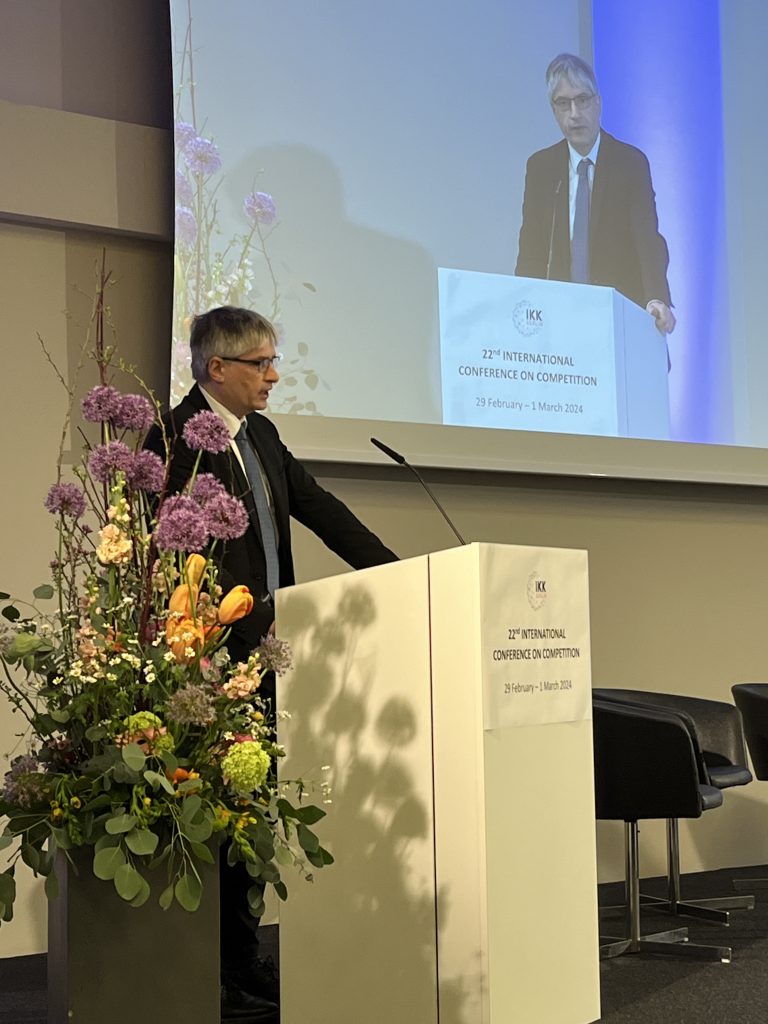
Giegold quickly turned to European competition law. A former member of the European Parliament, he is well aware that national competition policies only go this far. Unexpectedly (at least for me) he presented the Sven Giegold EU Competition Law Wish List:
- Introduce a New Competition Tool;
- Follow the Dutch example for sustainability exemptions;
- Revise the Damages Directive so as to have more leniency applications;
- Drop the more economic approach in Article 102 TFEU-cases;
- Finance DMA enforcement with fees (as in the DSA);
- Raise EU merger thresholds and devise rules against killer acquisitions.
No lack of ambition or confidence detected here.
Comp stands for…
My impression is that this wish list was presented for a reason. Germany wishes to take the stand when it is decided what COMP stands for in Brussels.
Let me briefly explain: The European Commission will be rebuilt after the EU elections in June. Talk of the town in Brussels is on “competitiveness”. Please note that this sounds like a nice word for people who love “competition”. But in practice, it is pretty much the opposite – it is a euphemism for “industrial policy”. Advocates of “competitiveness” would have allowed Siemens and Alstom to merge and they would shower European companies with taxpayer money in the vague hope for putting them in a better position in markets abroad.
So, competitiveness policies lead to a weakening of state aid-rules, competition rules, merger control. In 2019, economists have convincingly rejected this idea.
The test case for the comp vs comp camps is the merger of Siemens/Alstom. Remember, the Commission had prohibited this merger and had angered French and German politicians at the time. Executive Vice President Vestager stands with the decision unwaveringly, and she made the point at IKK that CRRC, the Chinese alleged strongman, has not come anywhere in the past five years. The time period nicely coincides with what you look at in a merger case. This assessment is probably not what economist Tomaso Duso envisages as a real ex post evaluation of a merger, but at first glance, Vestager seems right.
The reports
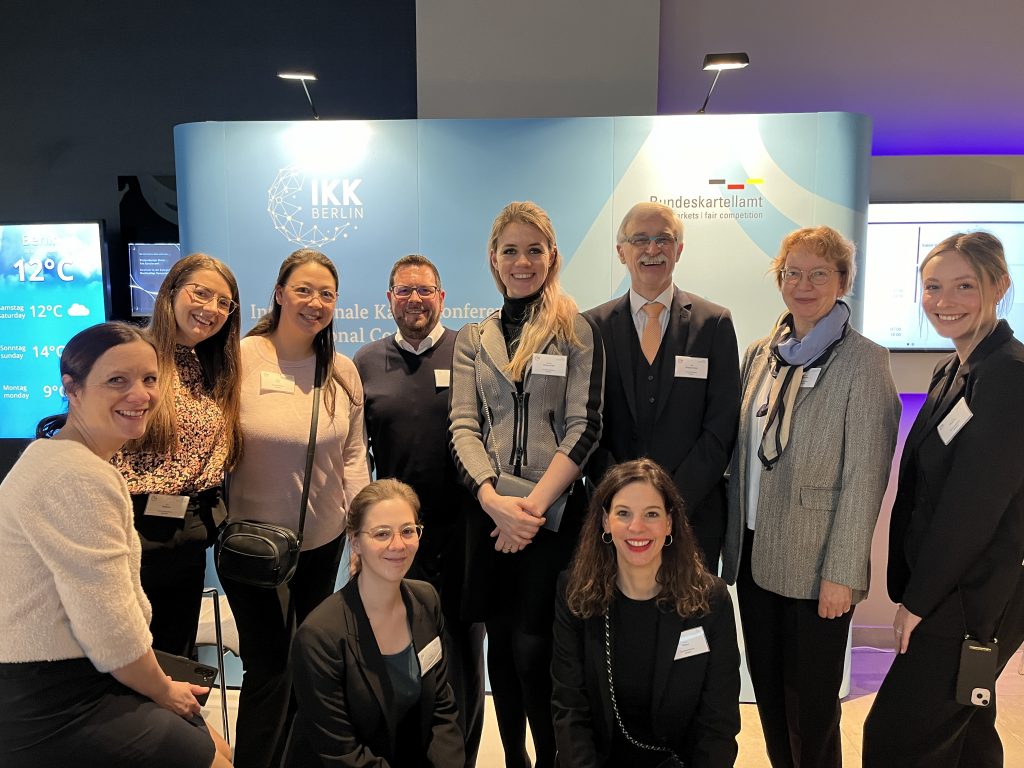
Those who love competitiveness better than competition hope for two reports that are due soon, the Letta Report and the Draghi Report. Both reports are expected to pave the way for EU policies in the coming years. They were commissioned by the European Council on the Internal Market (Letta Report) and the European Commission on Competitiveness (Draghi Report). The authors are heavyweights Enrico Letta and Mario Draghi. The former currently serves as President of the Jacques-Delors-Institute, an influential think tank. The latter (haha) is of course the former central banker. Both briefly served as Italian prime ministers, but then, who didn’t? More importantly, they seem to be sharp thinkers with a strategic mind.
The Giegold Wish List is to be understood in this context. The German government wants to see more competition on the agenda of the next EU Commission. The list feeds into the reports. Let’s hope for success, otherwise we will get “whatever it takes” (Draghi) for EU industry, even at the expense of competition.
CEO typology
The IKK offered a fascinating case study on types of German CEOs. I do not often see such men (and they are mostly male) in action. I was able to identify three types in Berlin. (Videos from all IKK talks are available here.)
Type 1: Tobias Meyer of DHL, the postal services incumbent, a global player. Meyer is a former McKinsey consultant with a certain air of ice. He does not flicker when Andreas Mundt asks a tough question. Meyer was in Dubai. He saw a lot of Chinese cars on the streets there. Meyer has a certain liking for China. Not good for European industry. Meyer probably loves competitiveness more than competition. He sounds very determined.
After the Meyer-talk a shrewd observer said to me in the break: “What a cry for help for Europe!”
Type 2: Arndt G. Kirchhoff of Kirchhoff Automotive, a family business turned global player with headquarters in the Sauerland. This is traditional German industry at its best. It is hard to imagine Kirchhoff at McKinsey’s. I rather see him organise a football tournament for his staff where he takes pride in handing out the Cup to the winners and where they also hand out an award for best Fair Play, and, oh, this is actually what he does! Kirchhoff is a regular in German competition circles, he engages in associations and advocates the social market economy model. I do not see him begging for state aid.
Type 3 was the show stealer: Johannes Reck, CEO of GetYourGuide, an online travel company that is a Unicorn. Reck (who looks like a twenty-something, but is closer to 40) has a degree from ETH Zurich and founded the company. Smart guy, clear message, right to the point, knowing his audience.
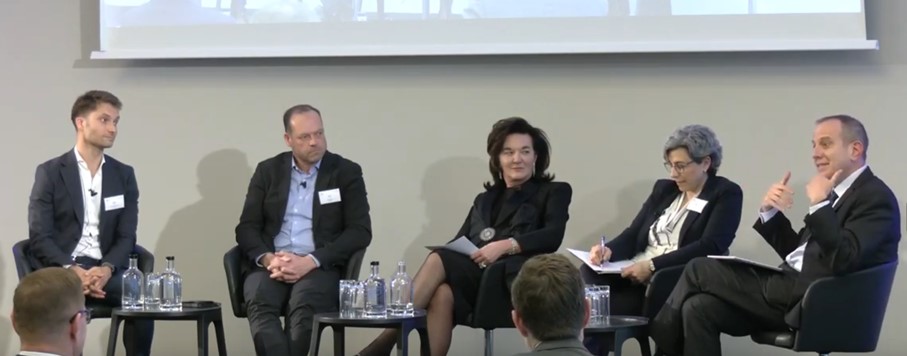
The panel discussed AI and competition. It was a strong line-up: Reck had Tobias Haar (General Counsel of Aleph Alpha, the German AI hopeful), Cristina Caffarra (no introduction needed) and Microsoft’s Rima Alaily with him, Ariel Ezrachi (Oxford) moderating. Two things stuck with me: One, there is far too little venture capital available in Europe for start-ups (if compared with the US). Two, the “AI Tech Stack” is highly concentrated in the hands of BigTech with disastrous potential for foreclosure. Rima Alaily kept a remarkably calm composure, but maybe she knows how difficult it is for competition agencies to capture AI activities (cf. the efforts here or here).
Ads
News broke during the IKK conference that Google faces a EUR 2,1 billion damages claim due to ad-tech practices in the Amsterdam Rechtbank. Publishing houses sue the company based on a 2021 decision by the French Autorité de la Concurrence. (This is not to be mixed up with the recent fine against Google, handed down by the French, for not honouring an agreement with publishers.)
When I think about it, I am still struck that 3 out of 6 gatekeepers basically make their money from advertising. Advertising, as we know, is another word for biased information. It is strange, isn’t it, that the transformation we go through is fuelled financially by advertising. Advertising tries to make people turn to something (Latin: advertere), i.e. turn away from the thing they are doing… This thought gives even more meaning to the final plea of DHL CEO Tobias Meyer at IKK: “Focus on what matters! Focus on what matters!” Put differently: Do not let yourself be turned away from what is important, e.g. by some targeted advertising that exploits your all-too-human flaws (with a bow to the late Daniel Kahneman).
By the way: Have I alerted you to our new DMA Commentary and the SCiDA-Project on digital regulation with a new blog?
Happy holidays!
Rupprecht Podszun is a professor for civil law and competition law at Heinrich Heine University Düsseldorf and the editor of the new DMA Commentary.
